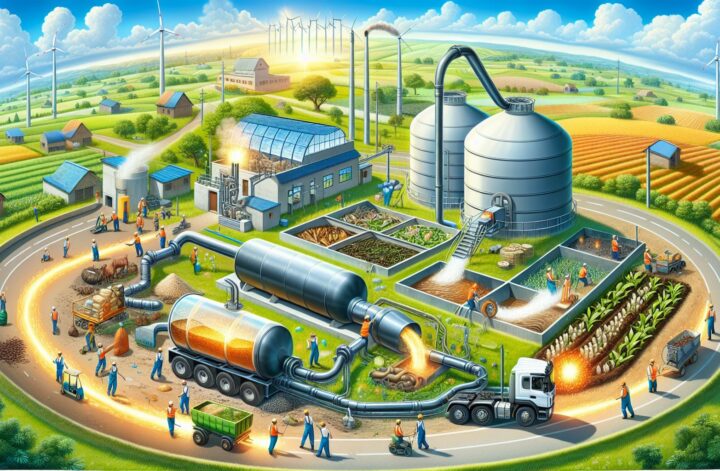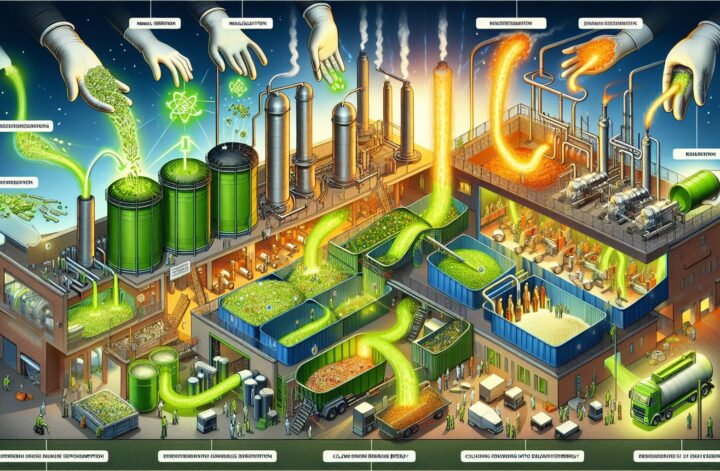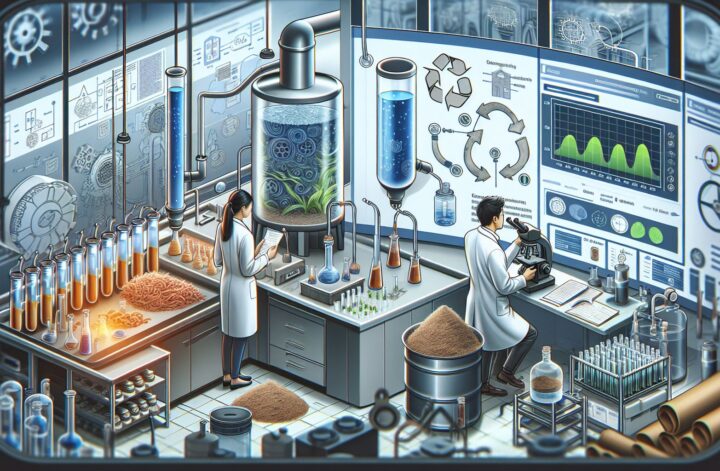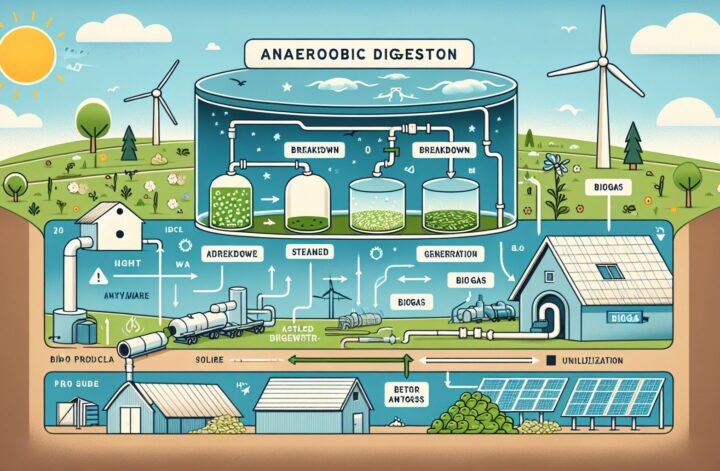As we traverse the 21st century, the need for sustainable and renewable sources of energy becomes more pressing by the day. With the twin threats of climate change and dwindling fossil fuel resources looming ever larger on the horizon, finding viable alternatives to conventional energy sources is a priority. There are many potential alternatives vying for prominence, but one resource that is particularly garnering attention is biogas.
In this article, we’ll delve into biogas production, its environmental implications, and the procedures involved in the creation of this renewable energy source.
What is Biogas?
Biogas refers to a type of biofuel that is naturally produced from the decomposition of organic waste. This can be waste materials from sources like households, industries, or agricultural sites. When organic waste breaks down in an environment devoid of oxygen, it releases a blend of gases, primarily composed of methane and carbon dioxide. This blend is what we know as biogas[^1^].
[^1^]: “What is Biogas? A Beginner’s Guide”. EcoMENA.
Biogas Production Process
The production of biogas involves a series of stages, all of which occur within an anaerobic digester- a sealed system that promotes microbial activity to break down waste materials. Here’s a simplification of the process:
-
Hydrolysis: Organic material, made up of long chain polymers, is broken down into simpler components like sugars, amino acids, and fatty acids.
-
Acidogenesis and Acetogenesis: The simple compounds from the first stage are further broken down into volatile fatty acids and alcohols. They are then converted into acetic acid, carbon dioxide, and hydrogen.
-
Methanogenesis: Methanogens, a particular type of archaea, convert the products of the previous stage into methane, carbon dioxide, and water – the primary components of biogas[^2^].
[^2^]: “How is Biogas Produced?: Biogas Production Process”. BioEnergy Consult.
The Benefits of Biogas
Biogas production offers several compelling benefits, both from an environmental and an economic standpoint.
-
Waste Management Solution: Biogas provides a sustainable solution for waste management. Organic waste, which contributes significantly to landfill pollution and greenhouse gas emissions, can be utilized for an environmentally friendly purpose.
-
Renewable Energy Source: Unlike fossil fuels, biogas represents a renewable source of energy. So long as organic waste is produced, biogase can be created and used for energy purposes.
-
Reduction of Greenhouse Emissions: Methane is a potent greenhouse gas, considerably more effective at trapping heat in the atmosphere than carbon dioxide. Capturing this methane in the biogas production process thus reduces the emission of greenhouse gases[^3^].
[^3^]: “Benefits of Biogas”. United Nations Industrial Development Organization (UNIDO).
Challenges and Solutions in Biogas Production
While biogas production indeed has potential, its widespread implementation comes with its share of challenges. Some of these include the potential toxicity of ammonia and other compounds in the digester, the occasional need for trace element supplementation, and the balance between organic loading rate (how much organic matter is introduced into the digester) and hydraulic retention time (how long the material stays in the digester).
Solutions and further research are being pursued to overcome these challenges. For instance, careful monitoring of digester conditions can prevent potential issues like ammonia toxicity. Furthermore, companies are developing more efficient biogas plants with optimized digester designs to accommodate different types of organic waste materials. Biogas scrubbing (the process of removing impurities) and upgrading (to enhance its energy output) are also being refined to generate higher quality and more effective biogas[^4^].
[^4^]: “Technologies for Biogas Production”. The Innovation and Networks Executive Agency (INEA).
Conclusion
Biogas production holds immense promise as a renewable source of energy and a method of managing organic waste. Through ongoing technical improvements and commitment to a greener future, we can hope to see biogas playing a crucial role in our future energy mix. The reliance on and depletion of our non-renewable resources need not continue unabated, as alternatives like biogas and other forms of renewable energy genuinely offer a beacon of hope.




